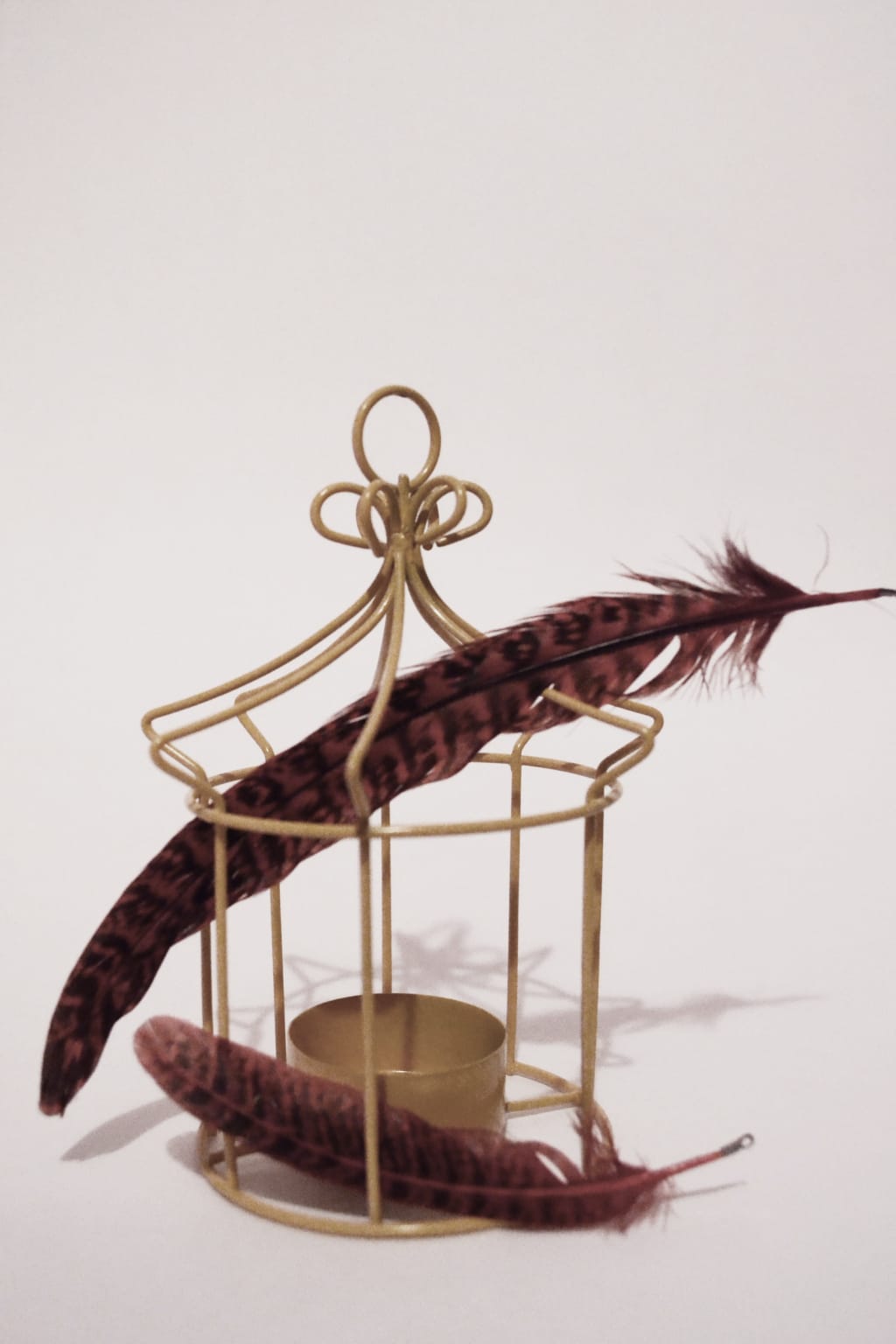A Bird in a Cage
On Keats' timeless yearning for the joy of eternity

I think perhaps I must be irredeemably dull, or else have been at the mercy of misfortune. Only in the past few days did I encounter for the first time the utterly heartfelt and ravishlingly luminous stanzas that are Keats' "Ode to a Nightingale".
Here are a few reflections, cast as grains of rice on the rippling velvet surface of a slow moving stream; that they may sink without trace, or float downstream, as they will.
As my eyes come to a focus, I see before me a simple picture: a youth, seemingly beyond time, and contemplative, reclines under the boughs of a fruit tree, admiring the lilted train of fluidity - the song of a nearby nightingale.
Stanza 1: Listening; it is though he knows not whether it is sleep, or death, that this youth is slipping into. His pain of separation passes swiftly; he crosses the threshold. For a brief time, he forgets himself, looses himself from all limitations; wings his way to the company of that nightingale. His act of creation does not possess - it shares the raw feeling of that 'light-winged dryad' as it sings out the joys of summer.
Stanza 2: That uncreate illimited joy! How may it be re-experienced? Through draughts of wine, perhaps? Will a 'beaker full of the warm South' bring forth that self-same ecstasy of inspiration? Shall the 'beaded bubbles' that are 'winking at the brim' bring him the essence he sees in wild-flowers and rolling meadow? To depart, unknown, for eternal re-union with this bliss ... As this stanza fades, his 'purple-stained mouth' and 'sunburned mirth' hint at a reveal two stanzas down.
Stanza 3: For a time this youth refocusses away from the subject of his adoration, and lights anew on limits of life as he sees it. The weariness and fever, those groans - not felt by the emancipated nightingale. The weltanschauung of sorrow, 'leaden-eyed despairs', and death. The weakness of infirmity, of gray hairs, youth no more, 'spectre-thin', where 'Beauty cannot keep her lustrous eyes'. Refocussed on himself, there is no 'beyond to-morrow' - only extinguishment, annihilation, and death; there is only laying down, trembling, fading fast to night.
Stanza 4: I witness his gaze, veiled with unshed tears, rise once more to that nightingale aflame with impalpable glory. Discarding scattered grey wisps of momentary flirtations with dissolution and passion, acknowledging the limitations of his ephemeral frame, does he homage to the vehicle of inspiration expressed through his craft. That inspiration, Divine in origin, blows to him, though it be through mere earthen objects. Unalloyed, he seeks none other.
Stanza 5: The youth's rhapsodist does not need eyes to perceive the sparkling beads of silvery inspiration that lay hid within flowers or incense. No, the redolence in all that he sees guides him: from grass and trees, through wild roses, the luculent scent of the 'coming musk-rose, full of dewy wine'. Even the pestilential fly. When once bearing witness to the brilliance behind the mask, one discerns it everywhere, in everything.
Stanza 6: Reflective, now, in the shadows, with 'quiet breath', the youth recalls his manifold yearnings to cross over the mortal boundary, to taste 'such an ecstasy'. If his aim could be achieved easefully and with no pain, it would be so rewarding for him. Alas for him! in his present state, the song the nightingale pours forth falls on leaden mortal ears ...
Stanza 7: Uncreate, abiding, this inspiration 'I hear this passing night', was heard by high and low alike, throughout history. The refugee in the dust, pining for home, might find whispered to her the self-same soughing breath that opens the way seemingly not of this realm to the limitless ocean of bounty.
Stanza 8: Yet for this youth, the realisation of exhilaration he considers beyond his reach, slipping away from his grasp. A fancy, deceiving, a 'plaintive anthem'. He awakens from his drowsiness, closing his eyes to Reality, and focusses once more on the vale of sorrow around him. The 'light winged dryad' flees from him: passing through the countryside he so loves, and hides itself well. Where perhaps he may chance upon it once more. Next time.
In these verses, I find death and sleep so inextricably intertwined that there is no separation in them. One is a metaphor for the other, fluidly. Yet in both death and sleep a gateway of vision opens up, for one to witness the Real, however fleetingly.
In meditative contemplation, Keats finds in all the sweet songs of joy that he seeks. For him, his poetry is his life, his meaning: his very being. Take it away, and he loses touch with the very inspiration, the very life essence, that is at the core of his being. Yet, for all this, still, he remains unbelieving at the last. Unwilling to grasp the bough proffered to rescue him from the sticky mire of mortality.
Keats sets up a delicious frisson of tension between the mortal clay that he feels is of his own being, and the immortal nightingale whose song elicits such unconditional joy. Cast in the metaphor of a waking dream, Keats pines for the soaring blissful state of being that he believes himself incapable of having.
That source of inspiration, of Divine assistance, that both Keats, in his 'Ode to a Nightingale, and Larkin, in his 'Aubade', are for me one and the same. Though for Larkin most of the space that he allows is occupied by terror, and only at the very end does light illumine the edges of his window, while for Keats it is during the darksome night that he finds most illuminating, waking once more to leaden dullness; still, their light source remains the same. Through their opposites, an essential underlying unity is revealed.
It is these moments of extended perception that form the base of the fountain of the poetic muse.
About the Creator
Andrew Scott
Student scribbler






Comments
There are no comments for this story
Be the first to respond and start the conversation.